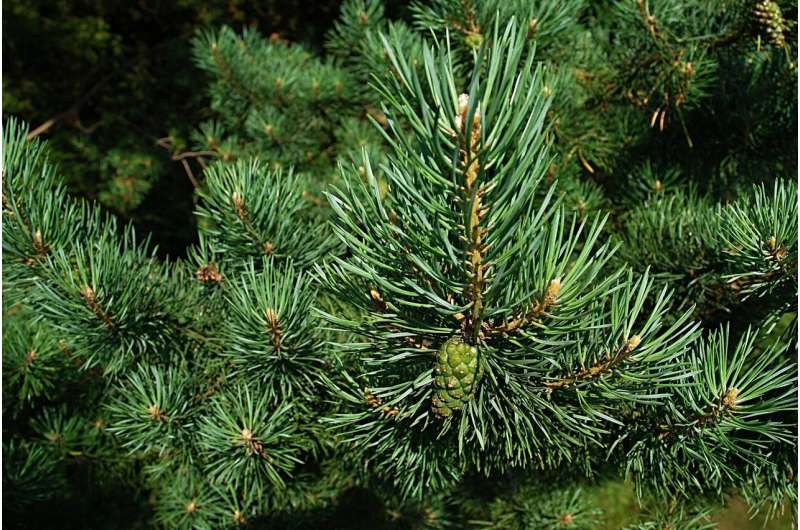Appropriate preconditioning and testing could reduce winter damage to seedlings

The growth of the trees in the boreal zone is based on the acclimation and adaptation of their annual cycle with the changes of the weather conditions during the four seasons. Winter damage would be one of the most difficult challenge for many different woody plants. To prevent the winter damage and obtain higher economic benefits, different preconditioning methods such as using winter storage to help the first-year seedlings over winter have been developed. However, appropriate preconditioning for the different progenies of the plus tree of forest seedlings within the same species, and different horticultural woody species and cultivars are not known well.
MSc Dongxia Wu's dissertation designed and implemented experiments to provide solutions for the appropriate precondition of economically important species in forestry and horticulture. The specific aim was to test the frost hardiness (FH) of Scots pine (Pinus sylvestris L.) progenies and cultivars of apple (Malus domestica Borkh.), blueberry (Vaccinium corymbosum L.), blackcurrant (Ribes nigrum L.), and pear (Pyrus communis L.) in late autumn/winter. The study aimed to determine whether the pollination environments affect the FH of Scots pine progenies, whether the storage conditions affect the FH of woody horticultural species and cultivars, and whether a warm spell in winter affects the FH of pear cultivars.
The results suggest relatively small pollination effects on the FH in the whole-plant freezing test between Finnish and Ukraine populations. The location of all seed orchards of the studied populations are suitable for production in Finland. The results on the FH of different horticultural species and cultivars suggest that proper precondition is three weeks at −3 degrees Celsius for apple and blueberry, and even shorter for blackcurrant. The FH of different cultivars of pear indicate that after a warm spell (3–4 and 16 days at +5 degrees Celsius) followed by a cold period (5–7 days at -7degrees Celsius) some rehardening was found in the shoots but not in the buds. According to the summarized results of this dissertation, FH testing can help to evaluate the preconditioning strategies to reduce the winter damage in the studied woody plants. The results can be utilized in the production processes to improve the plant material delivered to farmers and forest owners.
The doctoral dissertation of MSc Dongxia Wu, entitled Frost hardiness of Scots pine progenies and some woody horticultural cultivars under different preconditioning will be examined at the at the Faculty of Science and Forestry, on the 24th of September at Joensuu campus. The opponent in the public examination will be associate professor Majken Pagter, Department of Chemistry and Bioscience, Aalborg University, Denmark, and the custos will be Professor Ari Pappinen, University of Eastern Finland. The public examination will be held in English.
More information: Dongxia Wu, Frost hardiness of Scots pine progenies and some woody horticultural cultivars under different preconditioning, Dissertationes Forestales (2021). DOI: 10.14214/df.317
Provided by University of Eastern Finland

















